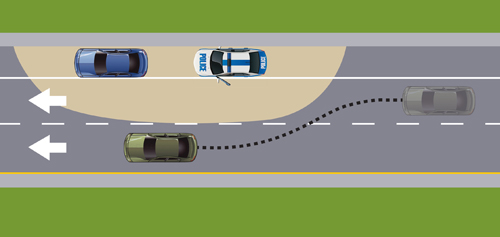Medical error is a broad label. It could include delivering the wrong drug, misreading a patient's chart, or operating on the wrong organ. A famous report by the Institute of Medicine in 1999 alerted America to the toll, estimating that medical errors killed between 44,000 and 98,000 people a year. Even at the low end of that range, they would have been the eighth leading cause of death at the time, more deadly in the late 1990s than car crashes, breast cancer, or AIDS.
Since that landmark report was published, U.S. hospitals, doctors, insurers, and regulators have taken halting steps to improve the safety of medicine. It's an ongoing, decades-long effort to make health care more like aviation, a high-risk environment where safety is paramount, systems are designed to prevent mistakes, and fatalities are rare.
The new estimate, published today, draws on four studies of deaths due to errors that have come out since the 1999 report. The authors extrapolate from those findings to reach their estimate of 251,000 annual deaths. Even that figure, they say, probably underestimates the actual toll, because it includes only deaths in hospitals, not in out-patient surgery centers, nursing homes, or other health care settings.
That doesn't mean deaths from medical errors have increased since the 1990s. Because different methodologies were used to come up with the numbers, it's hard to say what the trend looks like.
The American Hospital Association said in an emailed statement that while "one incident is too many," the industry has made progress. The group cited federal dataindicating that one type of patient harm, hospital-acquired infections, dropped by 17 percent between 2010 and 2014.
But the problem may well be undercounting, as the researchers warn, not overcounting. Public health authorities routinely tally deaths from diseases such as lung cancer and injuries such as auto crashes and drownings. They use that data to craft interventions—policies to discourage smoking or safety standards for cars and pools. There is no equivalent data for deaths from medical errors. Researchers can try to estimate the incidence, but they don't have precise tallies that show trends over time.
As a means of recording reliable data, the authors of the BMJ study call for a space on death certificates where doctors can indicate that a medical error contributed to the death. It may seem far-fetched to ask doctors to report their own mistakes, but at least one attempt to collect that information had high response rates and found that 5 percent of deaths may have been preventable. At Brigham and Women's Hospital in Boston, staff are even blogging about case studies of medical mistakes and the hospital's attempts to prevent them from happening again.
Perhaps because doctors and hospitals would worry that admitting errors might invite lawsuits, the Johns Hopkins authors alternatively suggest a system in which hospitals can investigate whether errors contributed to a death, assured that "data acquired for quality improvement is not discoverable" in court.
The need for better data is clear. "Measuring the consequences of medical care on patient outcomes is an important prerequisite to creating a culture of learning from our mistakes," the authors write.











